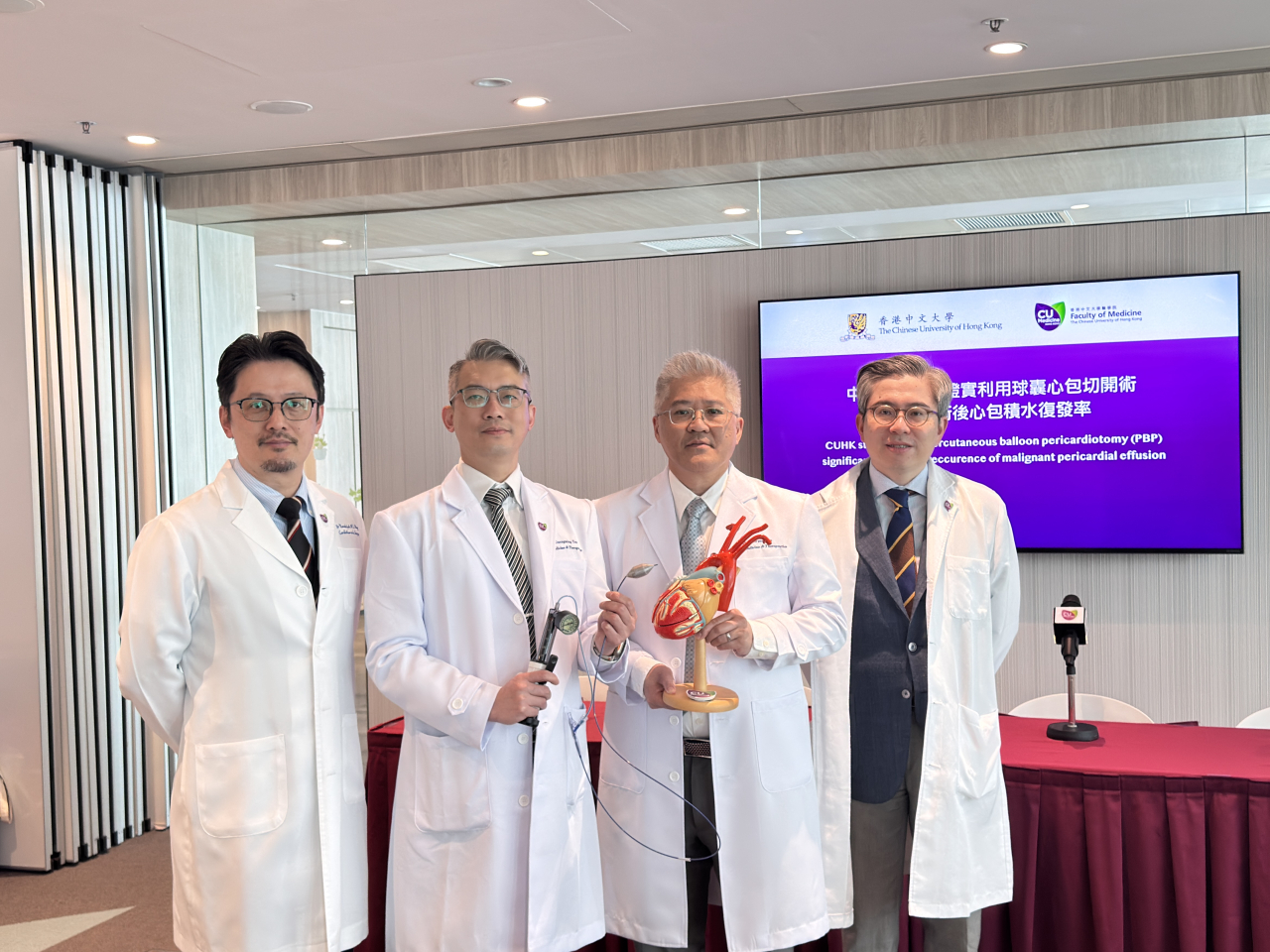Researchers from the Chinese University's Faculty of Medicine said on Friday that a minimally invasive surgery can reduce by 80 percent the recurrence of an excessive build-up of fluid around the heart seen in some cancer patients.
The condition, clinically known as malignant pericardial effusion, sees excessive fluid in the sac around the heart restrict blood movement and decrease heart function.
Presenting the findings of a study, professor of cardiology Bryan Yan said the procedure known as balloon pericardiotomy works by creating an opening in the sac.
"Balloon pericardiotomy drains fluid from the heart by stretching a hole in patient's sac with a balloon," he said.
"The patient can get a faster fluid drainage as the balloon can stretch and break a larger window in their sac."
Yan said the traditional needle drainage approach requires frequent hospital visits by patients.
Given its effectiveness, Yan said he believes balloon pericardiotomy can be a promising option to spare patients from repeated surgical procedures, and improve their quality of life.
"Patients receiving balloon pericardiotomy procedure are less likely to seek medical attention.
"With a reducing recurrence rate of malignant pericardial effusion, we can let them stay out of hospital longer."
He added the next stage of the study will be conducted in a global setting, with researchers hoping to gather more data.





